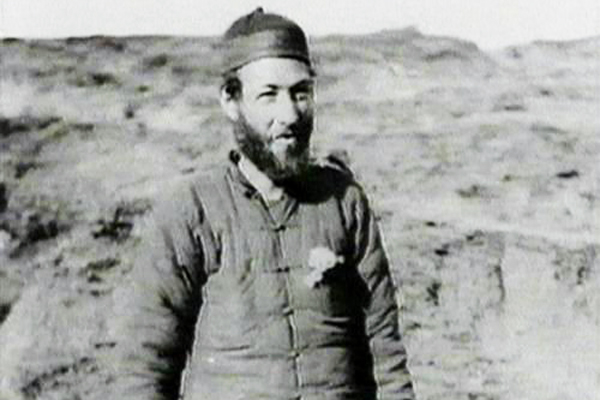


 |
|
File photo of Rudolf Bosshardt. [Photo from web] |
It's hard to imagine a foreign-language map becoming valuable for army when it's in a language nobody knows and at a time when the area is more or less closed off to outsiders.
It was early October 1934, and the Red Army just started the Long March when it accidently came across Rudolf Bosshardt, a Swiss British missionary working in China, in Guizhou province.
General Xiao Ke of the Sixth Corps decided to keep Bosshardt with the unit as he did not want to risk their secret military maneuver becoming public by allowing the missionary to go. This decision had a far-reaching consequence that even General Xiao had not anticipated.
At that time, the army was relying on nothing but a small map torn from middle school geography textbook. So a detailed map measuring one square meter was undoubtedly very valuable for the troops, but there was a small hitch: It was in French, a language none of the soldiers knew.
This is where Bosshardt's help proved to be invaluable as he knew French well and also bit of Chinese.
Bosshardt, who was 37 and then stayed with the Red Army for more than 500 days, translated the whole map.
"It was an unforgettable military help for me...this missionary translated the places on the map into Chinese for me. He also provided other information during the interpretation, based on which I was able to draw a clear plan about which direction the army should take," recalled Xiao in 1984.
With the help of the map and Bosshardt's information, leaders of the Six Corps decided to head towards the western part of Central China's Hubei province through the eastern part of Guizhou province to join forces with the Third Corps.
Bosshardt was a unique participant during the Long March. Although the Red Army did not have enough supplies, they tried their best to meet his needs, which moved him a lot. And he was also impressed by the strict discipline and spirit of the Red Army, according to Fang Wei, an editor based with Military Museum of China.
Bosshardt later recounted his experience in his book The Restraining Hand: Captivity for Christ in China, which was published in 1936, whose name was changed into The Guiding Hand when reprinted in 1978.
Bosshardt's legendary story will now grace the big screen in October in a joint production between Hunan's Xiaoxiang Film Group and local government of Huangping county in Guizhou province, according to an earlier report in Hunan Daily.
